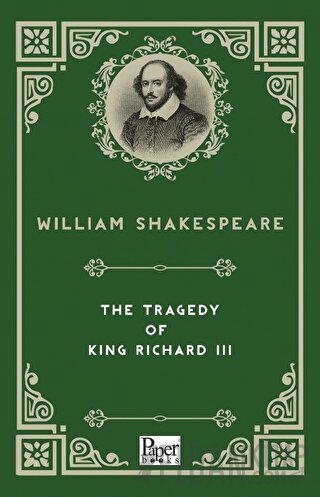
Richard III is a play by William Shakespeare. It was probably written c. 1592–1594. It is labelled a history in the First Folio, and is usually considered one, but it is sometimes called a tragedy, as in the quarto edition. Richard III concludes Shakespeare's first tetralogy (also containing Henry VI, Part 1, Henry VI, Part 2, and Henry VI, Part 3) and depicts the Machiavellian rise to power and subsequent short reign of King Richard III of England.
It is the second longest play in the Shakespearean canon and is the longest of the First Folio, whose version of Hamlet, otherwise the longest, is shorter than its quarto counterpart. The play is often abridged for brevity, and peripheral characters removed. In such cases, extra lines are often invented or added from elsewhere to establish the nature of the characters' relationships. A further reason for abridgment is that Shakespeare assumed his audiences' familiarity with his Henry VI plays, frequently referring to these plays.
Richard III is a play by William Shakespeare. It was probably written c. 1592–1594. It is labelled a history in the First Folio, and is usually considered one, but it is sometimes called a tragedy, as in the quarto edition. Richard III concludes Shakespeare's first tetralogy (also containing Henry VI, Part 1, Henry VI, Part 2, and Henry VI, Part 3) and depicts the Machiavellian rise to power and subsequent short reign of King Richard III of England.
It is the second longest play in the Shakespearean canon and is the longest of the First Folio, whose version of Hamlet, otherwise the longest, is shorter than its quarto counterpart. The play is often abridged for brevity, and peripheral characters removed. In such cases, extra lines are often invented or added from elsewhere to establish the nature of the characters' relationships. A further reason for abridgment is that Shakespeare assumed his audiences' familiarity with his Henry VI plays, frequently referring to these plays.




















